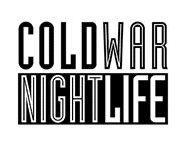 What abuse has not been hurled at Throbbing Gristle and its members? The legendary godparents of industrial music have been called “wreckers of civilisation” in Hansard, declared “vile” by the red topped British press and physically attacked by audiences.
What abuse has not been hurled at Throbbing Gristle and its members? The legendary godparents of industrial music have been called “wreckers of civilisation” in Hansard, declared “vile” by the red topped British press and physically attacked by audiences.
Certainly, TG were sonic extremists who dabbled in totalitarian imagery, caused riots and generated outrage. At the same time, their live performances borrowed something from jazz improvisation and the band was made up of some very gentle souls.
While their rock contemporaries indulged in heroin and trashed hotel rooms to impress the NME, TG always seemed to prefer a nice cup of tea and a sit-down. They might have been cast as culture destroyers by the tabloids and malicious politicians, but off-stage they were more likely to be found in the drawing room having a Bourbon biscuit or soldering circuits than corrupting the nation’s youth.
That isn’t to say they were closeted Laura Ashley milkmaids, but those who shouted the loudest about TG were usually the ones least equipped to critique either their art or lifestyles. They also missed the humanity at the root of its members’ actions.
An anecdote: at the end of the Carter Tutti Void debut at the Short Circuit festival, back in 2014, a skinhead called out in a gentle way, “Thank you very much!” Cosey Fanni Tutti (TG, Chris & Cosey, CTI, Carter Tutti), a former stripper and tampon exhibitor, acknowledged the gentleman with a generous smile, equally politely, from the stage. While the sound from the speakers might have blasted musical conventions to pieces, civility and kindness were in greater evidence in the interaction between Cosey and the audience than at any opera with its boorish, bourgeois followers.
 Fast forward to the last months of 2016 and here is Cosey in the refined space of a modern art gallery: bespectacled, sensibly dressed and surrounded by clippings from her short career as a sex worker. She’s here to read from her forthcoming book, Art Sex Music. Pictures last as long as they can be reproduced, but memories fade more quickly; so all of the audience’s attention is on Cosey as a storyteller, instead of the exposed and manipulated mammaries displayed on the walls.
Fast forward to the last months of 2016 and here is Cosey in the refined space of a modern art gallery: bespectacled, sensibly dressed and surrounded by clippings from her short career as a sex worker. She’s here to read from her forthcoming book, Art Sex Music. Pictures last as long as they can be reproduced, but memories fade more quickly; so all of the audience’s attention is on Cosey as a storyteller, instead of the exposed and manipulated mammaries displayed on the walls.
We have to wait until April 2017 for the book, but on the available evidence it will be a corker. For the evening’s event, Cosey selects a passage dealing with the infamous Prostitution show that took place at the ICA in 1976. We learn that the event was the subject of internal sabotage, as a carefully misplaced screwdriver nearly wrecked the PA, while the performance by COUM – the art collective that became TG – degenerated into a melee that ended with Genesis P-Orridge being led to Charing Cross A&E.
There, the doctors fussed over GPO’s supposed wounds – which were really fake blood from the act – while showing little interest in his actual injury. It comes across as less of a comment on the NHS than a metaphor for how the band was treated by the press.
Cosey’s account is humorous, detailed and warm. Her reading is followed by a Q&A, in which we learn that, following the chaos of the Prostitution show, she asked Sotheby’s to value a used tampon exhibited as part of the event. It was worth £80, the famous auctioneers decided. “I was very, very fertile then,” Cosey recalls.
The book will be easier to acquire and cheaper to own, but we expect it will be no less desirable as an artifact of a very provocative period.
Art Sex Music by Cosey Fanni Tutti is published by Faber & Faber with a first edition expected in April 2017.

